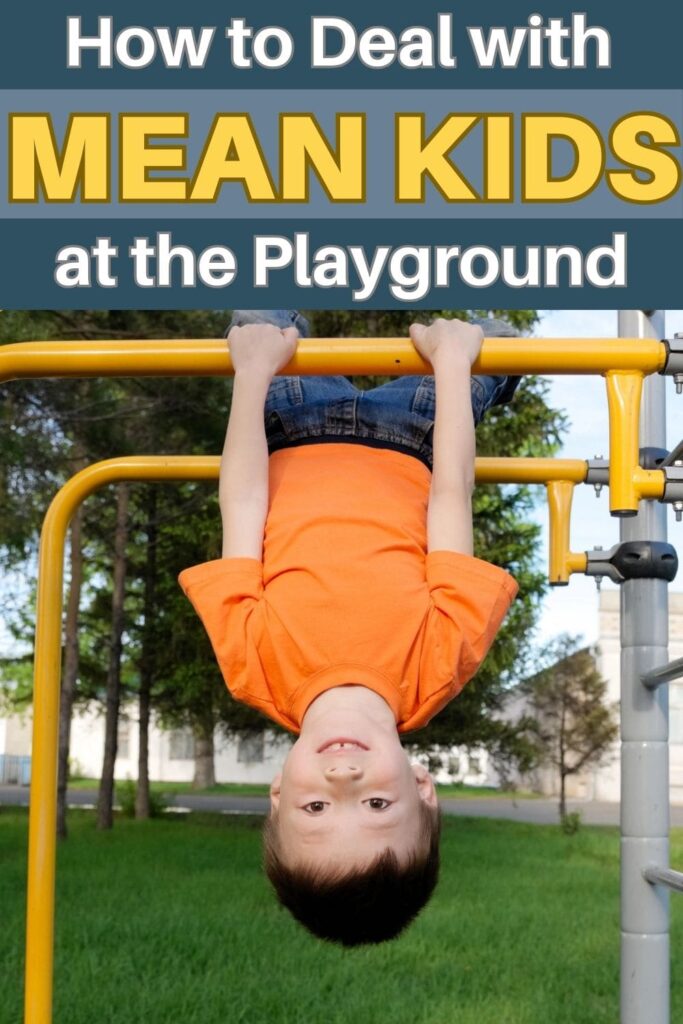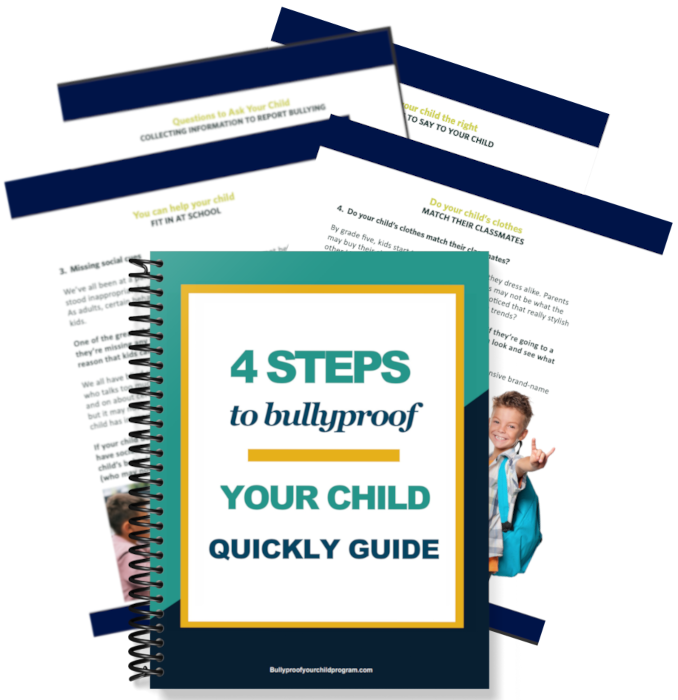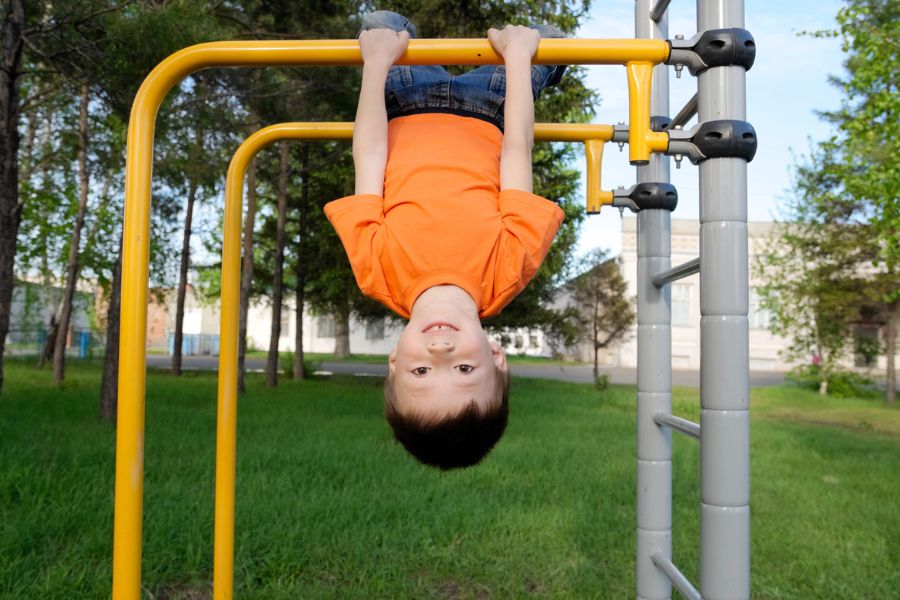
At some point in time your child is going to have to deal with a mean child on the playground. As a parent or caregiver, it’s painful to see your child upset or hurt by others, especially in a place that should be filled with laughter and fun like the playground.
Understanding why some kids act meanly can be a key step in helping your child through these challenging encounters.
This blog aims to equip you with the reasons behind such behavior and offer practical, empathetic strategies for you and your child.
Reasons why kids can be mean
If we step back and look into why some kids act mean, it can give us insights to help our children handle these tough situations. As a parent, it breaks your heart to see your child hurt by mean behavior from other kids, especially during those carefree playground times.
By understanding these reasons, you can help your child navigate these moments, teaching them empathy and resilience.
1. Lack of empathy
Seeing your child hurt by others is tough. Sometimes, kids are mean because they don’t really get how their actions make others feel.
They might say or do hurtful things without knowing how much it hurts someone. This lack of understanding, or empathy, is a big reason why some kids can be mean.
2. Attention-seeking
It’s heartbreaking to see, but some kids are mean because they’re craving attention. They might feel overlooked or lonely at home, and then they act out, seeking any kind of attention.
By teasing or bullying others, they get the reactions they’re looking for, feeling noticed and powerful, even if it’s for the wrong reasons.
3. Insecurity
Sometimes kids are mean because they feel unsure about themselves. They might be wrestling with doubts about who they are, what they’re good at, or where they fit in.
To cover up these insecurities, they might lash out, putting others down to lift themselves up. It’s a way of hiding their own fears behind a tough exterior.
4. Peer pressure
Sometimes, kids act mean because of peer pressure. They might feel like they need to bully or exclude others just to fit in or to stop themselves from being bullied. They think they have to act in a certain way to be liked or accepted by their friends.
Understanding this can really help you guide your child. By teaching them about empathy and how to be confident in who they are, you can help them stand up for themselves and others.
It’s about giving them the tools to not just get by, but to thrive, even when faced with mean behavior on the playground.
Building self-confidence
When your child faces mean kids on the playground, it’s really hard for them. But, you can help them become more confident and brave in these tough moments.
Here’s how you can help your child feel stronger and ready to stand up for themselves:
Promoting self-esteem
One powerful way to help them is by boosting their self-esteem. Let’s focus on their strengths and what makes them special. Say your child’s a little soccer star; let’s celebrate that! Cheer for their kicks and goals, and encourage them to keep playing and enjoying the game. Also, it’s important to help them see themselves in a positive light. How about a little mirror exercise? They can stand in front of it and say things like “I am strong” or “I am smart.” It might seem small, but these words can make a big difference.
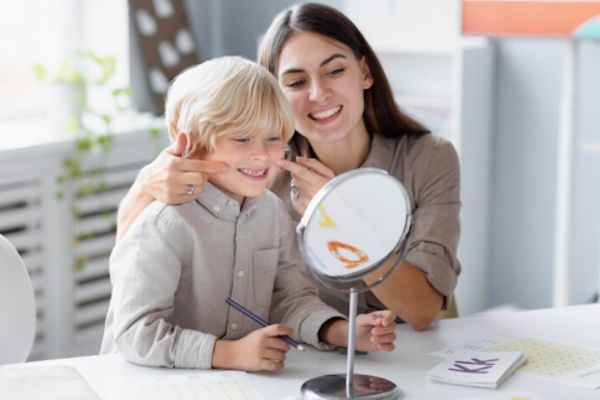
They can help your child feel braver and ready to face any mean words with their head held high. Let’s help them see just how amazing they really are!
Role-Playing Scenarios
Another way to help your child build self-confidence is to role-play different scenarios with them. Imagine, you and your child, setting up scenes where they face a ‘playground bully.’ You can be the mean kid, and they get to practice their superhero comeback lines.
Guide them to be bold and clear. They could say, “Stop it, that’s not nice” or “I don’t like it when you say mean things to me.” It’s all about being firm but respectful. This way, they can feel more in control and less scared.
What we’re doing here is not just teaching them words. We’re building a fortress of confidence inside them. A fortress that tells them, “I can handle this. I am strong.” By boosting their self-esteem and practicing these scenarios, you’re giving them tools to face those challenges head-on.
It’s incredible how much braver and stronger they’ll feel with a bit of practice and your loving support. Together, we can help them stand tall and proud, no matter who they meet on the playground.
Effective communication
Seeing your child face tough situations on the playground with mean kids can really pull at your heartstrings. It’s not easy, but teaching them effective communication can be a game-changer.
Let’s go through some simple yet powerful guides that you can share with your child:
Using assertive language
It’s crucial to teach them how to stand up for themselves in a respectful way. When someone is being unkind, encourage your child to express their feelings calmly.

They could say, “It hurts my feelings when you call me names.” This approach, using “I” statements, helps the other person understand the impact of their actions.
It’s also key to help your child be clear about what they want. If another child is taking their toys or not sharing, they might say, “I don’t like it when you take my toys without asking. Please ask me first.” Remind them to stay calm and keep their voice steady.
As a parent, guiding your child in using assertive language is a powerful tool. It helps them communicate effectively and deal with difficult situations in a healthy way.
Seeking help from adults
If your child is ever in a situation where they’re being hurt or threatened, it’s crucial to encourage them to seek help from an adult.
Teach them to find a teacher, you, or any trusted adult and share what’s happening. These adults are there to protect them and resolve the issue.
It’s also important to let your child know that adults are there for support, not just in scary situations, but also when they’re feeling overwhelmed or confused.
Encourage your child to talk to someone they trust about their feelings or any problems they’re facing. This can be a huge relief for them and can provide guidance and comfort.
You’re doing an amazing job teaching your child to be brave and speak up. But ralso remind them, it’s perfectly okay for them to seek help from adults when things get really challenging.
More posts you might like
- Confident kids are less likely to get picked on
- Not everyone will like your kid
- Why won’t parents admit their child is a bully
Strategies for dealing with mean kids on the playground
I understand how tough it can be for you and your child when they face mean kids on the playground. It’s a real challenge, and having a plan to deal with it is so important.
Let’s talk about some simple, effective strategies you can use to deal with mean kids on the playground:
Staying calm when you want to react to a mean child
I totally get how hard it is to stay calm when you see your child having a tough time with mean kids on the playground.
It’s really challenging, and your first instinct might be to react right away. But it’s so important to keep a cool head. Getting upset can actually make things more difficult for your child.
Here’s what you can do: Take a deep breath. Count slowly to ten. This little pause gives you a moment to calm down and think clearly. It’s all about handling the situation in a way that’s best for your child.

Remember, your calmness is a strength. It shows your child how to handle tough situations without getting overwhelmed. And when you’re calm, you can think of the best way to help your child through this. Your composed response is a powerful example for them.
Avoiding confrontation
One really helpful approach is teaching your child to avoid confrontation. When things get heated, confrontation can actually make it worse, turning into aggression or more mean behavior.
So, here’s a simple but effective idea: encourage your child to walk away. It’s not about giving up; it’s about staying safe. Suggest they find something else to do, maybe a different game or activity. This can help cool things down.
And if the mean kid keeps bothering them, it’s really important for your child to know they can get help. Tell them to go to an adult they trust or join a friend. Having someone by their side can make a big difference.
Finding allies on the playground
Another good way to help them it to encourage them to find friends, their own allies on the playground.
When your child has a group of friends, it’s not just about having fun together. These friends can be a real support system, standing with your child against any meanness.
Having buddies around can also make the playground feel safer and more enjoyable. It’s like having a team, where they all look out for each other. And when your child is with friends, those mean kids might think twice before bothering them.
So, in dealing with playground challenges, remember these key things: stay calm, steer clear of confrontations, and help your child find friends.
These steps can make a big difference. It’s about giving your child the tools and support they need to handle these situations in the best way possible.
When to involve authorities
It’s really tough when your child is dealing with mean kids on the playground. Sometimes, things can get really serious, and you might need to involve someone with more authority.
Here’s when you should think about doing that:
Identifying bullying behavior
If you’re seeing signs of bullying, like physical aggression, mean words, or your child being left out on purpose, it’s important to step in. Bullying isn’t just rough play or teasing. It’s when someone keeps being mean to someone else on purpose.
If you see this happening, or if your child tells you about it, it’s crucial to do something about it. This is about protecting kids and making sure they feel safe and happy. Remember, taking action shows your child that they’re not alone and that there’s help when they need it.
Reporting to a trusted adult
I can’t stress enough how important it is to act if you think your child, or any child, is being bullied. It’s a big deal, and it’s so crucial to tell a trusted adult about it.
This could be a teacher, a school counselor, or even another parent. You need someone who will listen and can really do something about it.

When you report bullying, you’re not just standing up for the victim; you’re helping to stop the bullying from happening again. It’s about keeping kids safe and making sure they’re treated kindly.
And sometimes, you might need to take bigger steps. If the bullying is really serious, or if it keeps happening even after you’ve told someone, you might need to involve higher authorities like the school administration or even the police.
It’s all about protecting the kids and making sure everyone is treated with respect and kindness.
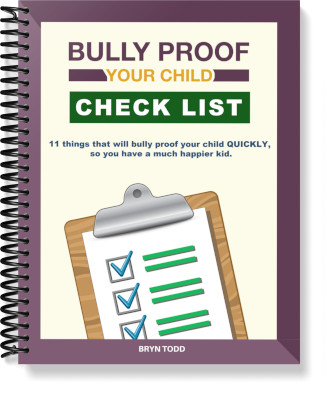
STOP YOUR CHILD FROM BEING A BULLY MAGNET
Do you worry about your child being picked on? Our Bully Proof Your Child Quickly Checklist will show you 11 things you can do to bully proof right now. It’s a game changer–get it free for a limited time!
Support systems for kids
Seeing your child struggle with mean kids on the playground can be really hard, but remember, you’re not in this alone. Having people to turn to can make a big difference for both you and your child.
Let’s talk about how you can find that support:
Talking to parents and guardians
I know how isolating it can feel when you’re trying to help your child deal with mean kids on the playground. But talking to other parents and guardians can be a huge help.
They might have been in the same boat with their kids and can share what worked for them. It’s comforting to talk to someone who really gets it.
You can also team up with these parents to think of ways to help your kids together. It’s like building a small community of support.
And if you’re feeling like you’re on your own because you don’t know other parents or guardians at your child’s school, there’s a solution.
Try joining parenting groups online or go to local parenting meet-ups. These places can be great for meeting people who are facing the same challenges as you are.
Finding supportive friends
Another thing you can do is help your child find supportive friends. Friends who are kind and understanding can make a huge difference. They can be there for your child, to listen and offer comfort when things are tough.
You can also help your child make new friends by encouraging them to join clubs or activities after school. It’s a great way for them to meet other kids who have similar interests and who might be more supportive and friendly.
Dealing with mean kids is definitely challenging, but remember, you and your child don’t have to face this alone. Finding the right friends and support can really help you both through these tough times. It’s about building a network of kindness and understanding around your child.
Creating a positive playground environment
I totally get how much the playground matters in your child’s school life. It should be a place where they feel included and happy, not scared or left out. Creating a positive playground environment is so important.
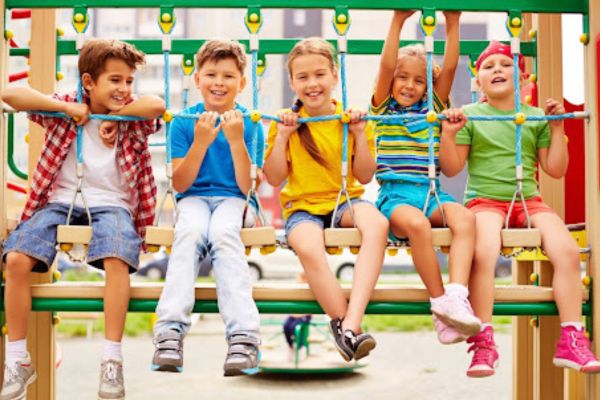
Here are some simple tips to help with that:
Inclusive play
I really feel how important it is for every child to feel included and happy on the playground. Inclusive play is key to making this happen. It’s all about making sure every child, no matter who they are or what they can do, feels welcome to join in and have fun.
Encourage kids to play together, to be part of games that everyone can enjoy. It’s such a simple thing, but it means so much. It’s about showing them that everyone belongs.
To make this easier, having different kinds of equipment and activities is a great idea. Think about things like basketball hoops, soccer balls, jump ropes, and hula hoops. This variety means there’s something for every child, something they can enjoy and feel good about.
And, it’s so important to encourage kids to help and support each other. Like, if someone’s having a hard time with the monkey bars, getting other kids to cheer them on or lend a hand can make a huge difference.
It’s not just about playing; it’s about building a little community where everyone looks out for each other.
Creating a playground where every child feels included and valued is really about making a place where they can all be happy and grow together. It’s about giving them the chance to play, learn, and be part of a team. That’s what makes a playground a really special place.
Key takeaways for dealing with mean kids on the playground
Dealing with mean kids on the playground can be a challenging experience for both parents and children.
Here are some key things to keep in mind to help you through this:
1. Stay calm and positive
It’s so important to stay calm and positive. Your child looks up to you, so if you’re calm, they’re more likely to be calm too. Try not to get angry. Instead, focus on how to solve the problem together.
2. Teach your child assertiveness skills
Teaching your child to stand up for themselves is really helpful. Encourage them to use “I” statements like, “I don’t like it when you call me names,” or “I want to play, but not if you’re mean.” This helps them say how they feel clearly and confidently.
3. Encourage empathy and kindness
It’s also great to teach your child about empathy and kindness. Talk with them about how it feels to be left out or picked on, and encourage them to be nice and include others. Show them what kindness looks like by being kind and empathetic yourself.
4. Seek help if needed
If things get too hard to handle on your own, it’s okay to ask for help. Talk to someone in charge like a teacher or playground supervisor. Working together, you can find a way to make things better. Remember, you’re not alone in this, and there are people who can help.
Dealing with mean kids is challenging, but with these steps – staying calm, teaching assertiveness, fostering empathy, and seeking help – you can really support your child and help them through this.
Conclusion
I know how hard it can be, seeing your child struggle with mean kids on the playground. It’s tough, but you’ve got some good strategies to help them through. Always be there to listen and give them the emotional support they need. It means the world to them.
Encourage your child to be brave and speak up for themselves. Teach them to use “I” statements to express how they feel.
Instead of saying “You’re mean,” they can say, “I feel hurt when you say mean things to me.” This approach can really help calm things down and lead to better communication.
Help your child think of ways to solve problems. Practicing different scenarios through role-play can be a great way to prepare them for any issues they might face on the playground.
And remember, if things get too tough, it’s okay to ask for help. Talk to teachers, school staff, or other parents. You’re not alone in this. There are people who can help and support both you and your child. Together, you can make the playground a happier place for your child.
